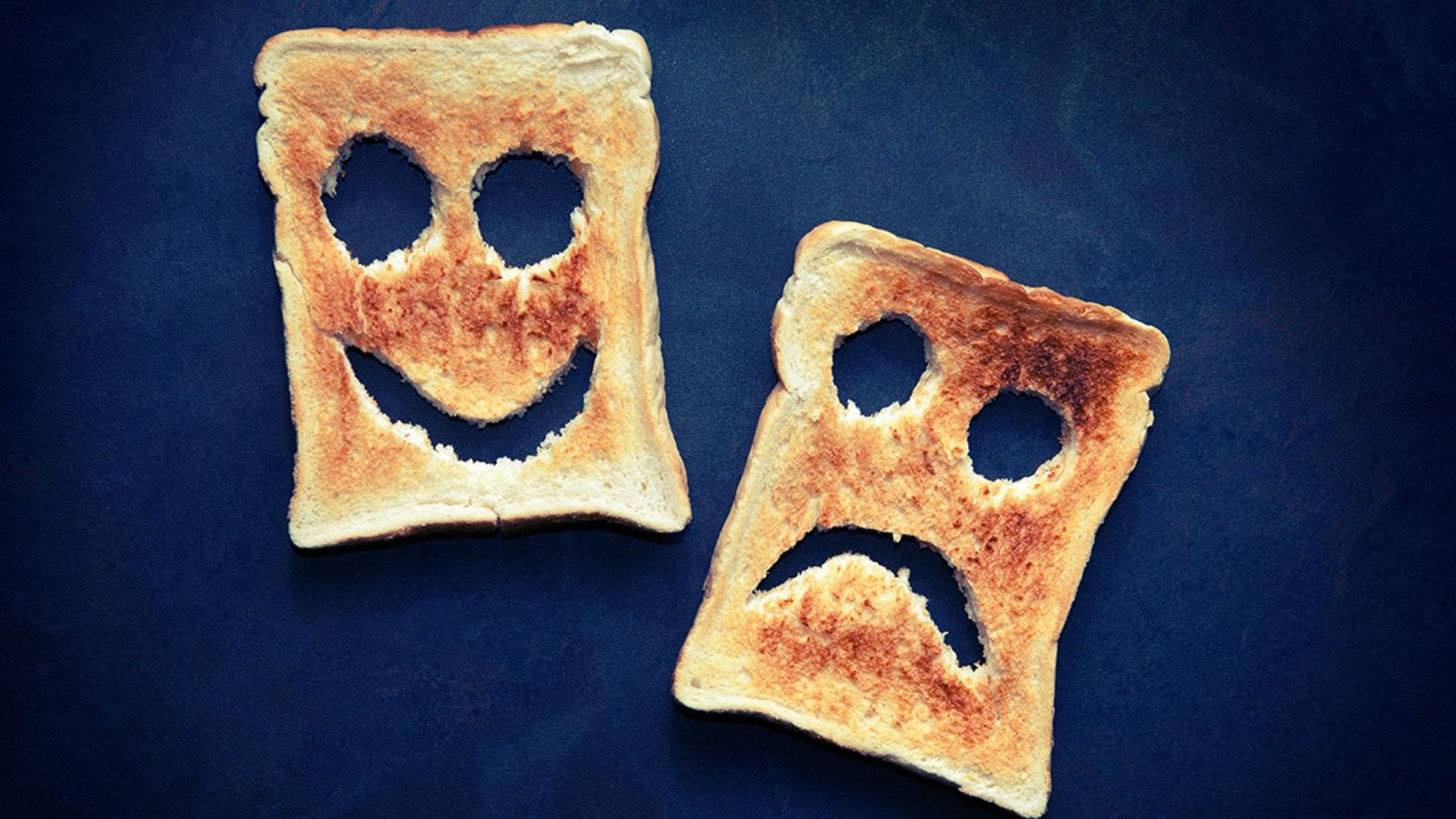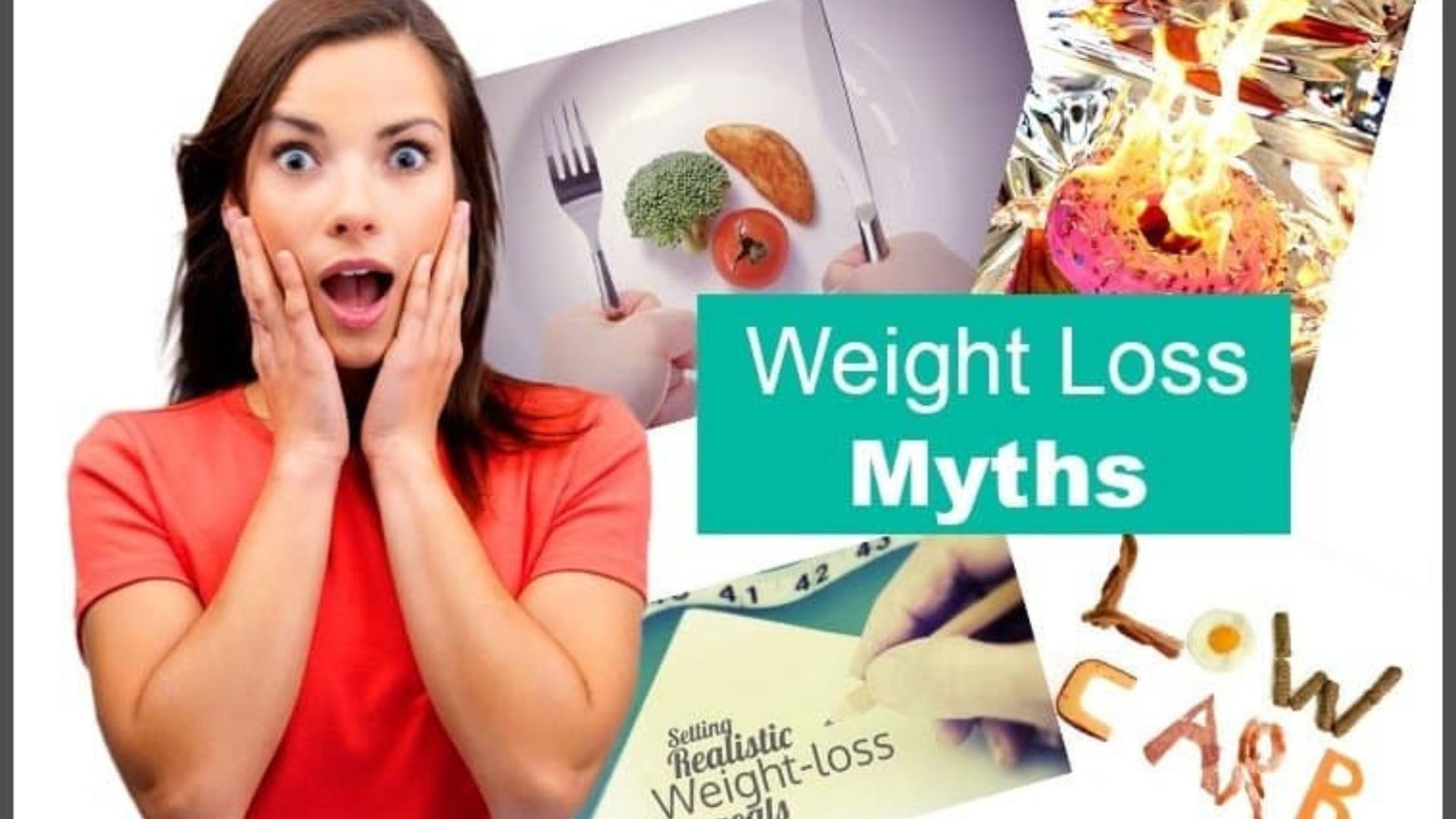Weight loss is surrounded by numerous myths and misconceptions that can lead to confusion and ineffective strategies. Understanding and debunking these myths can help you make informed decisions about your weight loss journey and adopt healthier, more effective practices.

Myth 1: Skipping Meals Helps You Lose Weight
The Truth: Skipping meals can actually hinder weight loss efforts.
Skipping meals may seem like an easy way to cut calories, but it can backfire. When you skip meals, you may end up feeling overly hungry, which can lead to overeating later. Additionally, skipping meals can slow down your metabolism and result in a loss of muscle mass. Eating regular, balanced meals helps maintain stable blood sugar levels and supports a healthy metabolism.
Myth 2: Carbs Are the Enemy
The Truth: Carbohydrates are an essential part of a balanced diet.
Carbohydrates often get a bad rap, but they are a crucial source of energy for your body. The key is to choose the right types of carbs. Opt for complex carbohydrates like whole grains, fruits, and vegetables, which provide essential nutrients and fiber. Avoid refined carbs and sugary foods, which can contribute to weight gain and poor health.
Myth 3: All Calories Are Equal
The Truth: Not all calories are created equal.
While it’s true that weight loss ultimately depends on creating a calorie deficit, the quality of the calories you consume matters. A diet high in processed foods and sugary snacks can lead to weight gain and health issues, even if you’re consuming the same number of calories as a balanced diet. Focus on nutrient-dense foods that provide vitamins, minerals, and other health benefits.
Myth 4: Fat Makes You Fat
The Truth: Healthy fats are important for weight loss and overall health.
Fat is often misunderstood and unfairly blamed for weight gain. In reality, healthy fats, such as those found in avocados, nuts, and olive oil, are essential for various bodily functions, including hormone production and brain health. Incorporating healthy fats into your diet can actually help you feel full and satisfied, which can aid in weight management.
Myth 5: You Can Spot Reduce Fat
The Truth: Spot reduction is not effective for fat loss.
Many people believe that targeting specific areas of the body with exercises will reduce fat in those areas. However, spot reduction is a myth. Fat loss occurs throughout the body as a result of overall calorie reduction and exercise. Combining cardio, strength training, and a healthy diet is the most effective approach for losing fat and improving body composition.
Myth 6: Drinking Diet Soda Helps with Weight Loss
The Truth: Diet soda may not aid in weight loss and could have other health implications.
Diet sodas are often marketed as a healthier alternative to regular soda, but they can have unintended consequences. Artificial sweeteners used in diet sodas may increase cravings for sweet foods and contribute to weight gain. Additionally, some studies suggest that consuming artificial sweeteners may have negative effects on metabolism and gut health.
Myth 7: Eating Late at Night Causes Weight Gain
The Truth: The timing of your meals is less important than your overall calorie intake.
Eating late at night does not inherently cause weight gain. What matters more is the total number of calories consumed throughout the day and maintaining a healthy, balanced diet. Late-night eating can lead to weight gain if it results in overeating or consuming unhealthy foods, but simply eating at night does not directly cause weight gain.
Myth 8: Extreme Diets Are the Fastest Way to Lose Weight
The Truth: Extreme diets are often unsustainable and can lead to negative health effects.
Fad diets and extreme calorie restrictions may lead to quick weight loss, but they are rarely sustainable in the long term. These diets can result in nutrient deficiencies, muscle loss, and other health issues. A balanced, gradual approach to weight loss is more effective and promotes long-term success.
Myth 9: Exercise Alone Will Solve Weight Problems
The Truth: Exercise is important, but it must be combined with a healthy diet for effective weight loss.
While exercise is crucial for weight loss and overall health, it is not a standalone solution. Combining regular physical activity with a balanced diet is essential for achieving and maintaining weight loss. Both diet and exercise play complementary roles in supporting weight management and overall well-being.
Myth 10: You Need to Detox to Lose Weight
The Truth: The body naturally detoxifies itself, and detox diets are often unnecessary.
The concept of “detoxing” through special diets or products is not supported by scientific evidence. The human body is equipped with organs like the liver and kidneys that naturally remove toxins. Instead of focusing on detox diets, prioritize a balanced diet rich in fruits, vegetables, and whole grains to support your body’s natural detoxification processes.
Entertaining Breaks Can Support Motivation
Staying committed to a weight loss plan often requires mental breaks and rewards. Some people find that responsible gaming or short online activities provide a relaxing escape from their routines. One interesting find for Australian users is the range of safespin casino bonuses australia which can serve as a light-hearted way to unwind. The key is moderation—treats and leisure can be part of a healthy balance when approached mindfully.
Conclusion
Debunking common weight loss myths can help you make more informed decisions about your health and fitness journey. Focus on evidence-based practices, such as maintaining a balanced diet, engaging in regular exercise, and adopting sustainable habits for long-term success. By understanding the truth behind these myths, you can achieve your weight loss goals effectively and healthily.




